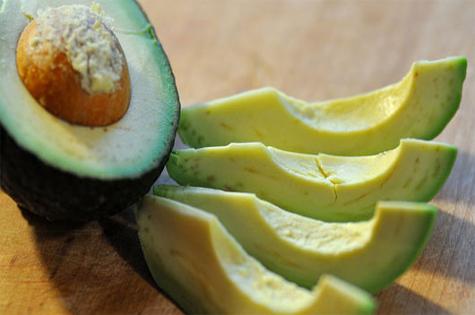Eating one avocado a day as part of a heart healthy, cholesterol-lowering moderate-fat diet can help improve bad cholesterol levels in overweight and obese individuals, according to new research published in the Journal of the American Heart Association.
Senior study author and chair of the American Heart Association’s Nutrition Committee and Distinguished Professor of Nutrition at Pennsylvania State University Penny Kris-Etherton said the research showed that there needed to be an increased focus on getting people to eat a heart-healthy diet that includes avocados and other nutrient-rich sources of better fats.
For the study, researchers used Hass avocados - the ones with bumpy green skin.
In addition to monounsaturated fats (MUFAs), the researchers said avocados also provided other bioactive components that could have contributed to the findings such as fibre, phytosterols, and other compounds.
According to researchers, many heart-healthy diets recommend replacing saturated fatty acids with MUFAs or polyunsaturated fatty acids to reduce the risk of heart disease. This is because saturated fats can increase bad cholesterol levels and raise the risk of cardiovascular disease.
The Mediterranean diet includes fruits, vegetables, whole grains, fatty fish, and foods rich in monounsaturated fatty acids - like extra-virgin olive oil and nuts. Like avocados, some research indicates that these not only contain better fats but also certain micronutrients and bioactive components that may play an important role in reducing risk of heart disease
Professor Kris-Etherton said the research evaluated the effect avocados had on traditional and novel cardiovascular risk factors by replacing saturated fatty acids from an average American diet with unsaturated fatty acids from avocados.
Researchers found that, compared with the baseline average American diet, low-density lipoprotein (LDL) – the so called ‘bad cholesterol’ – was 13.5 mg/dL lower after consuming the moderate fat diet that included an avocado. Several additional blood measurements were also more favourable after the avocado diet versus the other two cholesterol-lowering diets as well: total cholesterol, triglycerides, small dense LDL, non-HDL cholesterol, and others.
“These measurements are all considered to be cardio-metabolic risk factors in ways that are independent of the heart-healthy fatty acid effects,” says Professor Kris-Etherton.
In Australia, avocado orchards are found in NSW, Victoria, Queensland, Western Australia, South Australia and Tasmania. Avocados are a perennial fruit and Australian premium produce is available all year round because of the widespread and climatically diverse growing regions. The highest volume of fruit is available between March and November.
Avocado tips
- The best way to tell if a Hass Avocado is ready for immediate use is by the colour of the skin. The change from green, to rich purple, to a shade of black, means it is ready to eat.
- For green skin varieties such as Shepard, Reed, Sharwil and Wurtz, use gentle pressure on the stem to see if it yields. If it does, it's ready to eat!
- If you plan to serve the avocado in a few days, buy it when it's still hard and unripened.
- Avoid an avocado with dark blemishes on the skin.



















__small.png)










